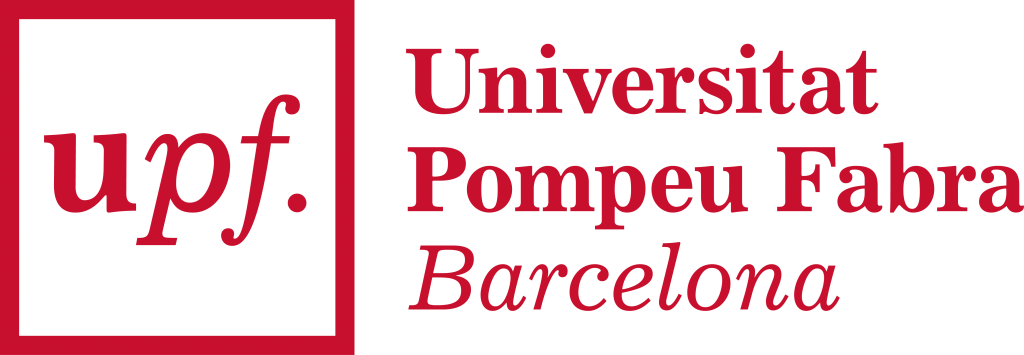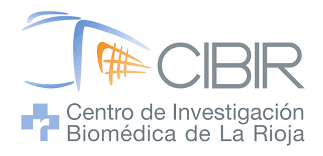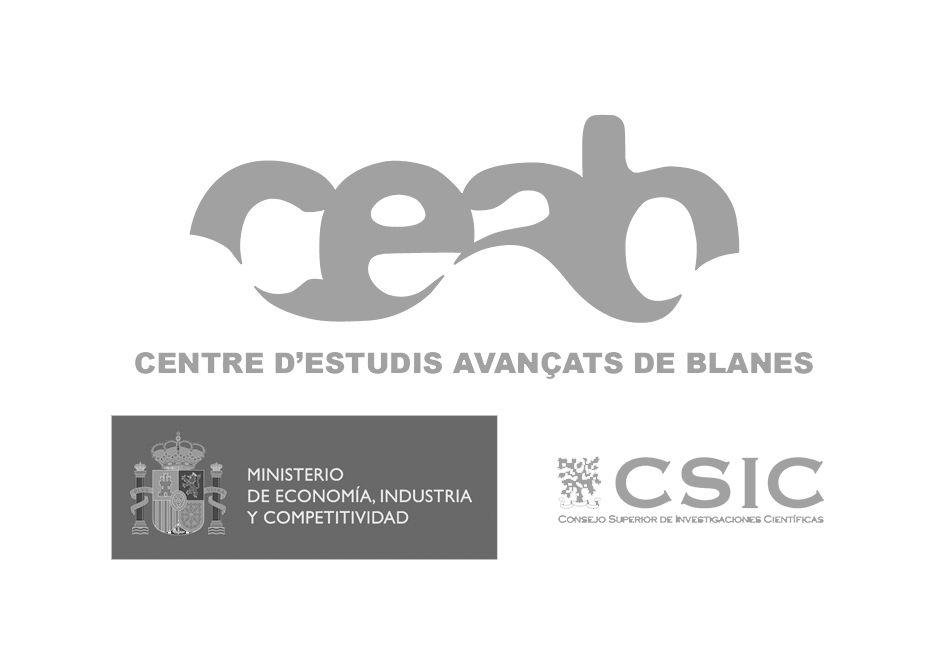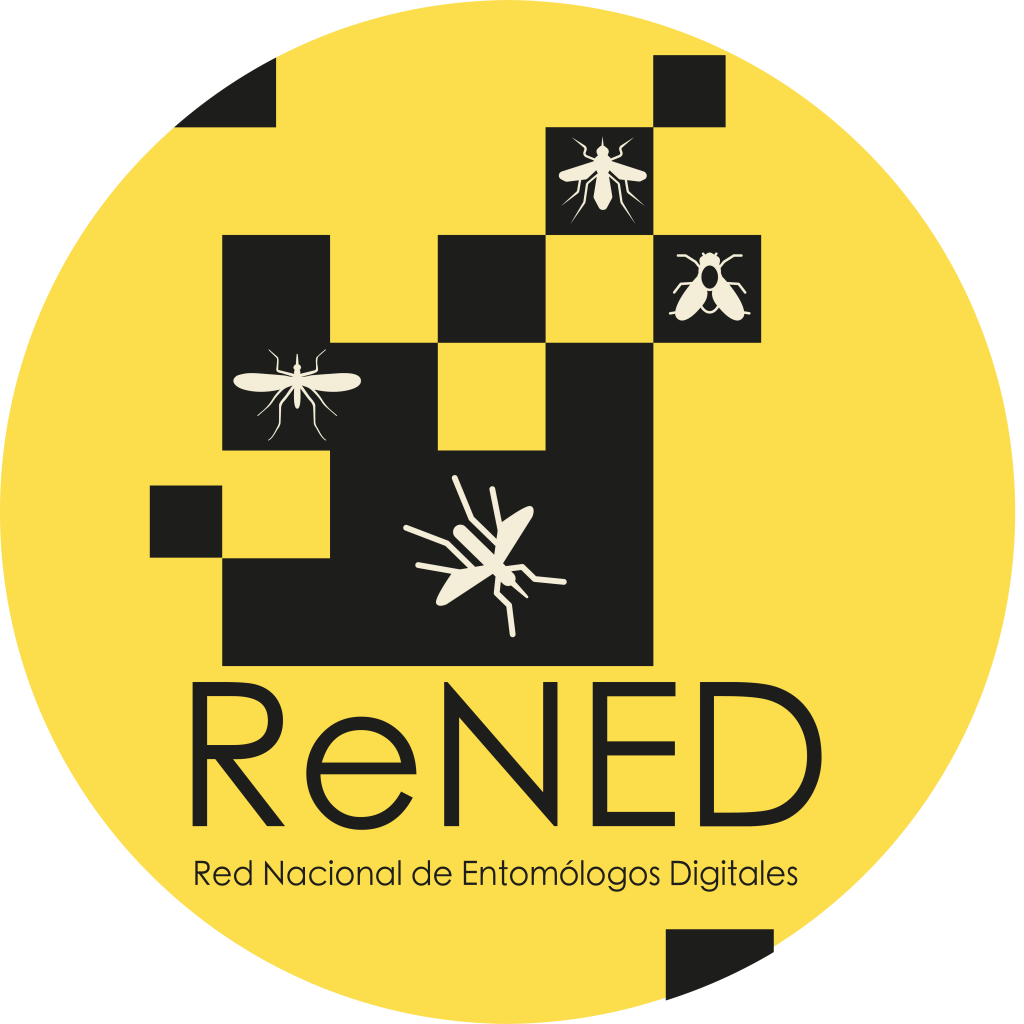
*
The National Network for Digital Entomology (ReNED from Spanish Red Nacional de Entomología Digital) is a community of professionals created to explore the new possibilities of the digital world for collecting entomological surveillance data. Its members are expert entomologists who analyze the ability and reliability of identifying species from digital images, paying special attention to species that may be disease vectors.
*
Currently, ReNED uses the Mosquito Alert tools to monitor the presence and expansion of different invasive mosquitoes of the Aedes genus throughout Spain. They analyze the photographs received through Mosquito Alert and identify the species. The community of experts has existed since 2015, having been an essential element of Mosquito Alert since its inception, but at the end of 2021 the creation of ReNED was formalized with the aim of consolidating and giving visibility to a new way of carrying out entomological surveillance that explores the digital possibilities of our time.

Carlos Barceló
Assistant Professor Doctor / Applied Zoology and Conservation, Department of Biology, University of the Balearic Islands

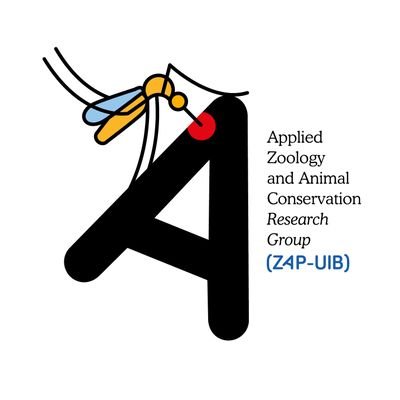
Selection of scientific papers
- Barceló, C., Bengoa, M., Monerris, M., Molina, R., Delacour-Estrella, S., Lucientes, J. & Miranda, M.A. 2015. First record of Aedes albopictus(Skuse, 1894) (Diptera; Culicidae) from Ibiza (Balearic Islands; Spain). Journal of the European Mosquito Control Association. 33: 1-4.
- Barceló, C. & Miranda, M. A. 2021.Development and lifespan of Culicoides obsoletus s.s. (Meigen) and other livestock-associated species reared at different temperatures under laboratory conditions. Medical and Veterinary Entomology. 35 (2): 187-201.
-
Bengoa, M., Rotger, A., Luzón, R., & Barceló, C. 2021. Larvae ecology and adult activity of Aedes mariae (Diptera: Culicidae) in a touristic rock-pool area of the Balearic Islands (Western Mediterranean). Bulletin of Entomological Research, 1-8.
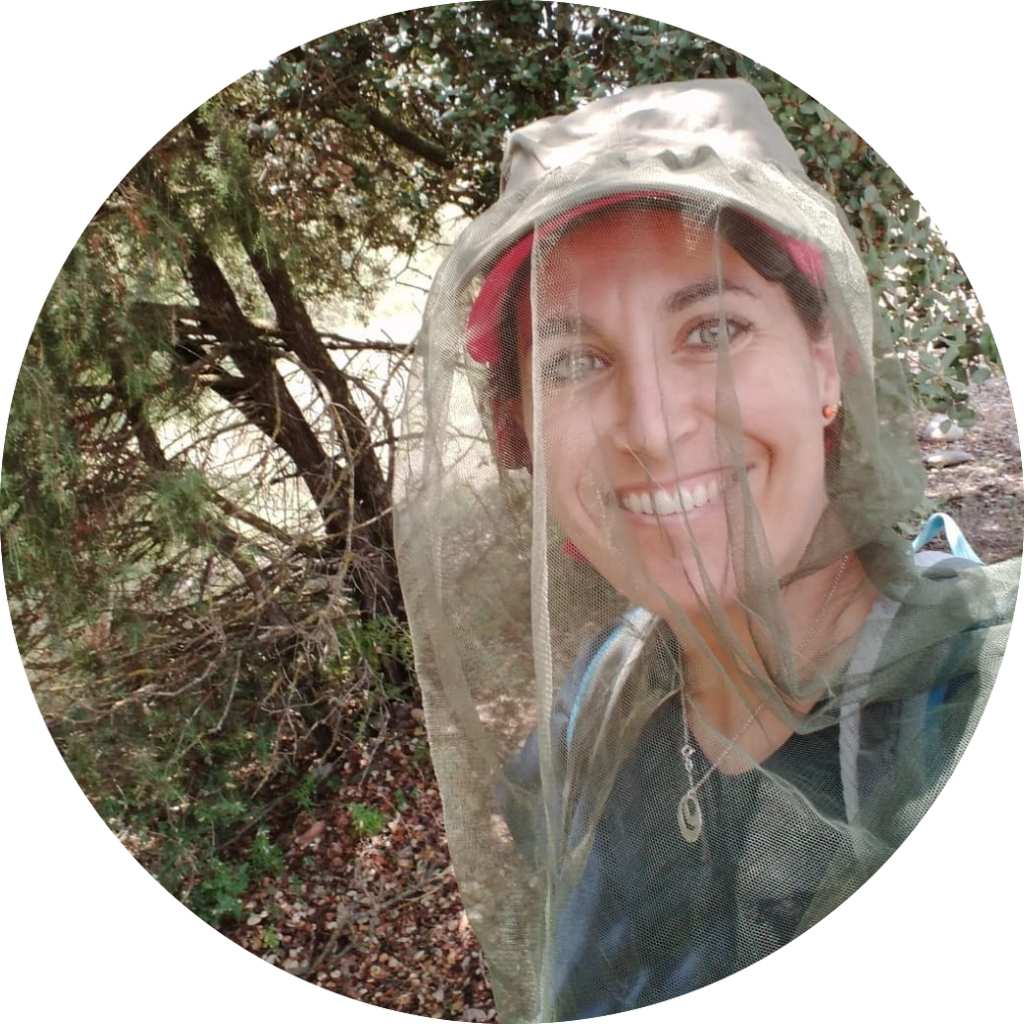
Sarah Delacour Estrella
Hired researcher for the Chimera Biological Systems R&D Department. Associate Professor Department of Animal Pathology of the Faculty of Veterinary Medicine. Zaragoza’s University
Selection of scientific papers
- Collantes, F., Delacour, S., Alarcón-Elbal, P.M., Ruiz-Arrondo, I., Delgado, J.A., Torrell-Sorio, A., et al. 2015. Review of ten-years presence of Aedes albopictus in Spain 2004–2014: known distribution and public health concerns. Parasites & Vectors; 8: 655. 2015.
- Palmer, J.R.B., Oltra, A., Collantes, F., Delgado, J.A., Lucientes, J., Delacour, S., et al. 2017. Citizen science provides a reliable and scalable tool to track disease-carrying mosquitoes. Nature Communication 8.
- Hernandez-Triana, L.M., Barrero, E., Delacour-Estrella, S., Ruiz-Arrondo, I., et al. 2019. Evidence for infection but not transmission of Zika virus by Aedes albopictus (Diptera: Culicidae) from Spain. Parasites & Vectors 12: 2014

Martina Ferraguti
Postdoctoral researcher MSCA-IF /University of Amsterdam (UvA)
Selection of scientific papers
- Ferraguti M, Heesterbeek H, Martínez-de la Puente J, […], Figuerola J. 2021. The role of different Culex mosquito species in the transmission of West Nile virus and avian malaria parasites in Mediterranean areas. Transboundary and Emerging Diseases, 68: 920–930.
- Ferraguti M, Martínez-de la Puente J, Bensch S, Roiz D, Ruiz S, Soriguer R, Figuerola J. 2018. Ecological determinants of avian malaria infection: an integrative analysis at landscape, mosquito and vertebrate community levels. Journal of Animal Ecology, 87: 727-740.
- Ferraguti M, Martínez-de la Puente J, Roiz D, Ruiz S, Soriguer R, Figuerola J. 2016. Effects of landscape anthropization on mosquito community composition and abundance Spain. Scientific Report, 6: 29002.

Daniel Bravo Barriga
Hired researcher, Parasitology Unit, University of Extremadura
Graduated in Veterinary Medicine in 2009, he began his research activity in the field of vector-borne zoonotic parasites. He obtained a FPU scholarship from the Ministry of Spain to carry out a doctoral thesis on mosquitoes and sandflies in Extremadura (Spain). He defended his thesis in 2017 and was awarded the National Prize of the Royal Academy of Doctors of Spain, as well as the Extraordinary Doctorate Prize of the University of Extremadura. Since 2017 he has been working as a Research Staff at the Veterinary School of Cáceres, where he carries out studies focused on the surveillance of Aedes albopictus and pathogens transmitted by arthropods. Currently, his latest study deals with dipterans of public health importance (phlebotomine sandflies, mosquitoes and blackflies) in urban areas in Extremadura. He is the author of 40 scientific (JCR) and informative articles, 5 book chapters, more than 50 communications to national and international congresses and 3 national research awards for studies related to entomology. His main research areas are in arthropods and associated pathogens, especially mosquitoes and arboviruses (WNV, Usutu), sandflies, and surveillance and control of arthropods in different ecological environments; as well as risk analysis of diseases transmitted by insects.
My favorite mosquito species is Sabethes cyaneus, the adonis of mosquitoes, a visual spectacle.
I joined Mosquito Alert in 2018.
Selection of scientific papers
- Bravo-Barriga D, de Almeida APG, Delacour-Estrella S, Peña RE, Lucientes J, Sánchez-Murillo JM, Frontera E. 2021. Mosquito fauna in Extremadura (western Spain): Updated catalog with new records, distribution maps, and medical relevance. Journal of Vector Ecology, 46(1), 70-82.
- Bravo-Barriga D, Gouveia Almeida AP, Parreira R, Jiménez-Vidal D, Pérez-Martín JE, Martín-Cuervo M Frontera E. 2019. First detections of Aedes albopictus(tiger mosquito) in the region of Extremadura, west of Spain. Gaceta Sanitaria, 33 (3)299-300.
- Bravo-Barriga D, Parreira R, Almeida AP, Calado M, Blanco-Ciudad J, Serrano-Aguilera F J, … & Frontera E. 2016. Culex pipiens as a potential vector for transmission of Dirofilaria immitis and other unclassified Filarioidea in southwest Spain. Veterinary Parasitology 223: 173-180.
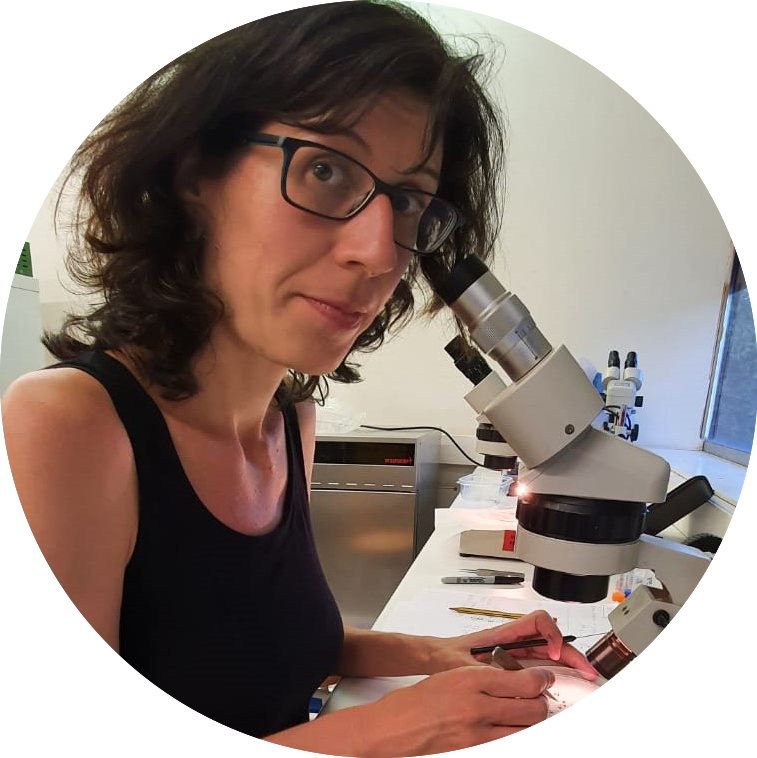
Isis Sanpera-Calbet
Field technician and postdoctoral researcher, Pompeu Fabra University
I am a biologist, specialist in aquatic ecology. She is currently part of the Mosquito Alert (MA) team and works at Pompeu Fabra University. My work focuses on the sampling and identification of mosquitoes in the Barcelona area to analyze their spatio-temporal distribution and the factors that determine it; These data are used to model and make predictions of the risk of exposure, since they are mosquito vectors of diseases. We are also working with the networks of interactions between the tiger mosquito and people through their bites and the analysis of the blood they contain. Likewise, she was part of the ReNED as an expert, validating photos sent by citizens to the MA app.
My relationship with the study of mosquitoes began as a technician at the Baix Llobregat Mosquit Control Service (SCM), participating in the MA project on the passive dispersion of the tiger mosquito. At SCM I also worked on sampling urban and natural areas for mosquito control. My doctoral thesis and master’s degree focused on the effects of global change (drought and eutrophication) and riparian forest management on the functioning of headwater rivers (quality and processing of organic matter, and biodiversity of invertebrates). I have developed my scientific activity in Catalonia, France and Canada, always working as a team.
My favorite mosquito species is Culiseta longiareolata, I find it elegant, it doesn’t bite people and can be found almost anywhere.
I joined Mosquito Alert in 2020.
Selection of scientific papers
-
Eritja R, Palmer JRB., Roiz D, Sanpera-Calbet I. & Bartumeus F. 2017. Direct Evidence of Adult Aedes albopictus Dispersal by Car. Scientific Reports 7, 14399.
-
Pastor A, Hernández-del Amo E, Giménez-Grau P, Fillol M, Pereda O, Flores L, Sanpera-Calbet I,(+27 authors) & Catalán N. 2020. Early-career coordinated distributed experiments: empowerment through collaboration. Frontiers in Education 5: article 13.
-
Sanpera‐Calbet I, Acuña V, Butturini A, Marcé R, Muñoz I. 2016. El Niño southern oscillation and seasonal drought drive riparian input dynamics in a Mediterranean stream. Limnology and Oceanography 61: 214-226.

Ignacio Ruiz Arrondo
Postdoctoral researcher / Center for Rickettsiosis and Diseases Transmitted by Arthropod Vectors of the Biomedical Research Center of La Rioja (CIBIR) / Associate Professor in Infectious Diseases in the Department of Animal Pathology / University of Zaragoza
I have a degree in veterinary medicine (DVM, 2006), a Master’s in Public Health (MSc, 2012) and a doctorate in the animal medicine and health program at the University of Zaragoza (Outstanding Cum Laude and UNIZAR extraordinary award, PhD, 2018). This thesis makes a significant contribution to the study of the ecology and impact on Public Health of the species Simulium erythrocephalum, a hematophagous dipteran that for a few years has been responsible for numerous health alerts in various regions of the country. I have worked as a fellow at UNIZAR, in a private company (Quimera BS), as a freelancer, I have completed a self-financed doctorate without a scholarship and since 2016 I have worked as a researcher in the Department of Infectious Diseases of the CIBIR, a group dedicated to the study of zoonoses under the One Health concept. As a teacher, I have been an extraordinary collaborating professor at UNIZAR for several years and since the 2020-2021 academic year I have been teaching as Associate Professor in the Department of Animal Pathology at UNIZAR. My training as a veterinary entomologist has allowed me to participate in a variety of projects and research work in the area of Biomedicine. My main line of research is medical-veterinary entomology, studying different aspects of the ecology and impact on Public Health of vectors such as mosquitoes and blackflies and the pathogens they transmit.
My favorite species of mosquito is Uranotaenia unguiculata, discreet because it bites amphibians and reptiles, but, very nice!
I joined Mosquito Alert in 2017.

Selection of scientific papers
- Ruiz-Arrondo I, McMahon BJ, Hernández-Triana LM, Santibañez P, Portillo A, Oteo JA. 2019. Surveillance of Mosquitoes (Diptera, Culicidae) in a Northern Central Region of Spain: Implications for the Medical Community. Frontiers in Veterinary Science. 6:86
- Ruiz-Arrondo I, Hernández-Triana LM, Nikolova NI, Fooks AR, Oteo JA. 2020. Integrated Approaches in Support of Taxonomic Identification of Mosquitoes (Diptera: Culicidae) in Vector Surveillance in Spain. Vector-Borne and Zoonotic Diseases. 20 (11): 831-842
- Ruiz-Arrondo I, Oteo JA, Lucientes J, Muniesa MA, de Blas I. 2020. Surveillance of a pest through a public health information system: the case of the blackfly in Zaragoza (Spain). International Journal of Environmental Research and Public Health. 17(10):3734
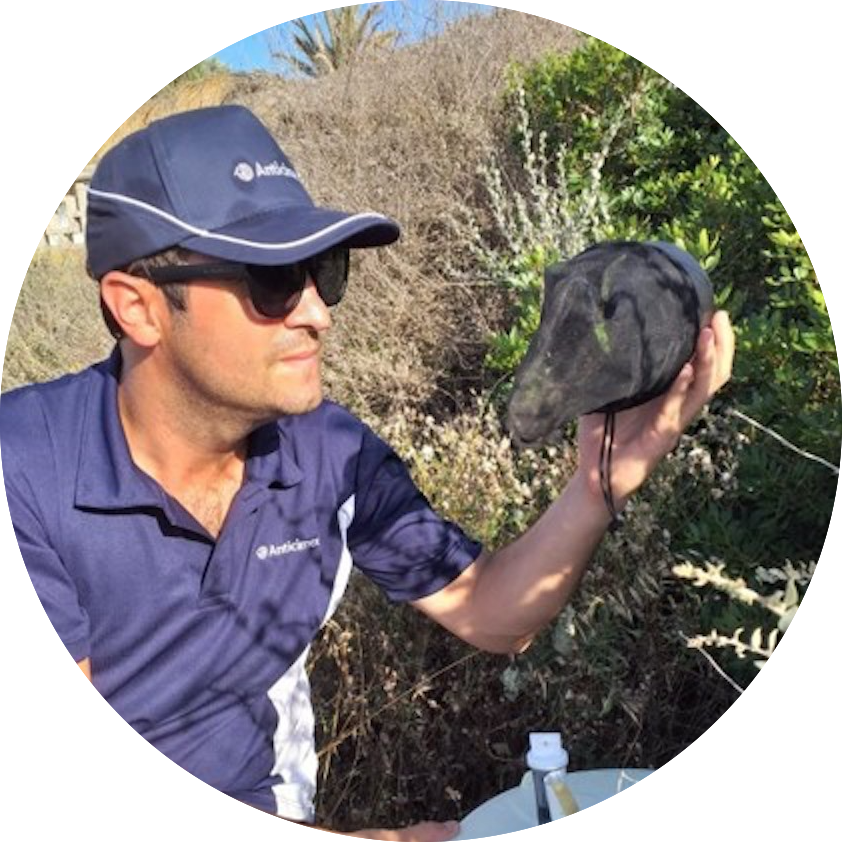
Mikel Bengoa Paulis
Mosquito specialist technical manager at Anticimex
Degree in Biological Sciences from the University of Navarra (1998-2001) and doctorate from the University of Zaragoza (2018) with a thesis entitled “Application of adulticides for the control of Aedes albopictus (SKUSE, 1894)”. My interest in insects began when I was very young, but my interest in mosquitoes in particular began while he was working in the Urban Pests laboratory at CIDEMCO (Azpeitia). Here he began an academic and also professional specialization in the control of the tiger mosquito. In 2014 I applied the knowledge he had acquired by creating a company dedicated exclusively to the management and control of the tiger mosquito in the Balearic Islands, called Consultoria Moscard Tigre. In 2019 I started collaborating with an international pest control company called Anticimex as a national mosquito expert. In 2021 I became part of the Anticimex staff.
My favorite mosquito species is Aedes albopictus, although I am also fascinated by Aedes mariae, but the tiger mosquito has been the focus of my thesis and my work for the last 12 years.
I joined Mosquito Alert in 2015.
Selection of scientific papers
- Bengoa M, Roger Eritja R, Lucientes J. 2014. Ground ultra-low volume adulticiding field trials using pyrethroids against Aedes albopictus in the Baix Llobregat region, Spain. Journal of the American Mosquito Control Association 30(1):42-50.
- Bengoa M, Eritja R, Delacour S, Miranda MA, Sureda A, Lucientes J. 2017. First data on resistance to pyrethroids in wild populations of Aedes albopictus from Spain. Journal of the American Mosquito Control Association 33(3):246-249.
- Bengoa M, Delacour S, Barceló C, González MA, Luzón R, Mendes J, Melero-Alcibar R, Carreras D. 2020. Los culícidos (diptera: culicidae) de Menorca (España). Boletín de la Sociedad Entomológica Aragonesa 66: 177-183

Roger Eritja
CREAF – Researcher / Baix Llobregat County Council – Co-director of the Mosquito Control Service / Nature photographer
Professional in the study and control of mosquitoes since 1983, being one of the creators of the Baix Llobregat Mosquito Control Service. He wrote his doctoral thesis on Culex pipiens, directed a couple more, and is the author of some thirty relevant scientific articles. He has served as an expert advisor to ECDC, WHO Europe and several other organizations. Member of EMCA and former president of the European branch of SOVE, he has actively participated in most European working groups such as VBORNET and AIM-Cost, being one of the Spanish references in invasive culicids. He is currently interested in the monitoring of Aedes japonicus in Spain, and in the social psychological aspects of the impacts of the tiger mosquito, apart from the development and testing of new control methods.
My favorite mosquito species is Aedes albopictus, as it is a fascinating being, more adaptable than most people!
I joined Mosquito Alert in 2015.
Selection of scientific papers
- Eritja R, Palmer JRB, Roiz D, Sanpera-Calbet I, Bartumeus F. 2017. Direct Evidence of Adult Aedes albopictus Dispersal by Car. Scientific Reports 7, 14399.
- Palmer, JRB, Oltra A, Collantes F, Delgado JA, Lucientes J, Delacour S, Bengoa M, Eritja R, Bartumeus F. 2017. Citizen science provides a reliable and scalable tool to track disease-carrying mosquitoes. Nature Communications 8: 916
- Eritja, R, Delacour-Estrella S, Ruiz-Arrondo I. et al. 2021. At the tip of an iceberg: citizen science and active surveillance collaborating to broaden the known distribution of Aedes japonicus in Spain. Parasites Vectors 14, 375
- Eritja R, Ruiz-Arrondo I, Delacour-Estrella S. et al. 2019. First detection of Aedes japonicus in Spain: an unexpected finding triggered by citizen science. Parasites Vectors 12: 53
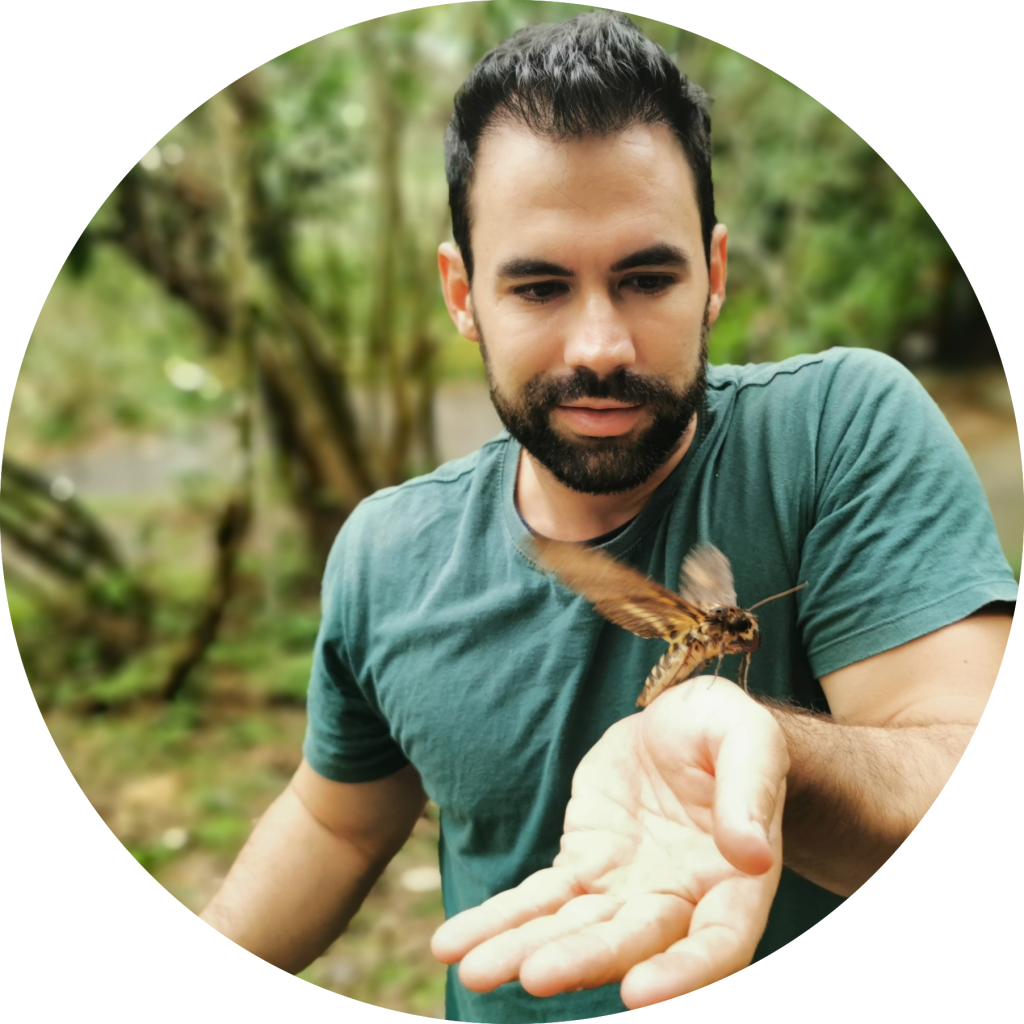
Mikel Alexander González
Hired researcher / Applied Zoology and Conservation, Department of Biology, University of the Balearic Islands
Degree in Biological Sciences from the University of Navarra (2005-2009) with a Master’s Degree in Pest Control and Management from the University of Valencia (2010). He has a Doctorate in Biological Sciences with a cum laude mention from the University of the Basque Country (UPV/EHU) (2011-2014). He has completed three postdoctoral stays abroad, with the University of Lancaster (United Kingdom) (2015-2016), with the Oswaldo Cruz Institute, Fiocruz (Brazil) in collaboration with Neiker-BRTA (Basque Institute for Agricultural Research and Development, Spain). ) (2017-2020) and with UNIBE-Universidad Iberoamericana (Santo Domingo, Dominican Republic) (2020-2021). During the last 11 years he has worked with different groups of Diptera, all of them of medical-veterinary importance, such as midges (Culicoides: Ceratopogonidae), sandflies (Lutzomyia: Psychodidae) and mosquitoes: (Aedes, Anopheles and Culex: Culicidae). Recently he is also starting in other less studied groups such as horseflies, eye secretion flies and black flies. My participation in these groups of disease-transmitting hematophagous arthropods has focused on the field of taxonomy, ecology, biology, entomological surveillance, vector competition studies, molecular techniques and optimization of control strategies. Until now, he has published a total of 36 scientific publications and has written a book.
My favorite species of mosquito is Aedes rusticus, as it is the most aggressive Adenina we have in Álava.
I joined Mosquito Alert in 2019.

Selection of scientific papers
-
González MA, Pavan MG, Fernandes RS, Busquets N, David MR, Lourenço-Oliveira R, García-Pérez AL, Maciel-de-Freitas R. 2019. Limited risk of Zika virus transmission by five Aedes albopictus populations from Spain. Parasites and Vectors. 12: 150.
-
González MA, Dilger E, Ronderos MM, Spinelli GR, Courtenay O, Hamilton JGC. 2020. Significant reduction in abundance of peridomestic mosquitoes (Culicidae) and Culicoides midges (Ceratopogonidae) after chemical intervention in western São Paulo, Brazil. Parasites and Vectors.13: 549.
-
González MA, Prosser, SW, Hernández-Triana LM, Alarcón-Elbal PM, López S, Ruiz-Arrondo I, Goiri F, Hebert, PDN, García-Pérez AL. 2020. Avian Feeding Preferences of Culex pipiens and Culiseta spp. Along an Urban-to-Wild Gradient in Northern Spain. Frontiers in Ecology and Evolution 8: 568835.

Francisco Collantes Alcaraz
Professor of the Department of Zoology and Anthropology of the University of Murcia
Degree in Biology and Doctorate in Animal Biology from the University of Murcia. Doctoral thesis on the Psychodidaee of Nicaragua. Studies on insects, especially diptera of health importance: Phlebotominae, Ceratopogonidae and Culicidae. Author of 44 scientific publications. Technical advisor of the entomological surveillance program against bluetongue in the Autonomous Community of Murcia (2002-2012). Technical advisor to the National Plan for Preparedness and Response to Vector-Borne Diseases. Technical advisor to the Regional Tiger Mosquito Surveillance Plan for the Region of Murcia, 2019-present. Editor of the Anales de Biología magazine (2010-present).
My favorite mosquito species is Aedes albopictus, as it is the center of much of my professional activity
I joined Mosquito Alert in 2020.
Selection of scientific papers
-
Collantes F, Méndez MJ, Soto-Castejón C, Muelas EM. 2020. Consolidation of Aedes albopictus surveillance program in the Autonomous Community of the Region of Murcia, Spain. International Journal of Environmental Research and Public Health 17: 1–12.
-
Palmer JRB, Oltra A, Collantes F, Delgado JA, Lucientes J, Delacour S, Bengoa M, Eritja R, Bartumeus F. 2017. Citizen science provides a reliable and scalable tool to track disease-carrying mosquitoes. Nature Communications 8: 916.
-
Collantes F, Delacour S, Alarcón-Elbal PM, Ruiz-Arrondo I, Delgado JA, Torrell-Sorio A, Bengoa M, Eritja R, Miranda MÁ, Molina R, Lucientes J. 2015. Review of ten-years presence of Aedes albopictus in Spain 2004–2014: known distribution and public health concerns. Parasites & Vectors 8: 655.

Sergio Magallanes Argany
Post-Doctoral Researcher
As an expert doctor in Biological Sciences from the University of Extremadura (Uex), my research focused on invasive species, ecological processes, host-parasite-vector interaction and defensive strategies in wild birds such as the secretion of the uropygial gland against the avian malaria parasite. He obtained the degree of doctor with honors “Cum laude” in September 2018 at the UEx, obtaining the extraordinary doctorate award in January 2019 by the Uex. My postdoctoral research has focused on the study of vectors, in particular the mosquito species competent for the transmission of West Nile virus (WNV). Specifically, in the last two years I have studied the circulation of this virus between wild birds and mosquitoes. Currently, I work at the CSIC Doñana Biological Station where I study the factors that can affect the transmission of WNV in wildlife, livestock and humans.
My favorite mosquito species is Aedes japonicus, due to its physical appearance, its reproductive behavior and its possible health implications
I joined Mosquito Alert in 2020.

Selection of scientific papers
- Magallanes S, Møller AP, Luján-Vega, C, Fong E, Vecco D, Flores-Saavedra W, … & Marzal A. 2021. Exploring the adjustment to parasite pressure hypothesis: differences in uropygial gland volume and haemosporidian infection in palearctic and neotropical birds. Current Zoology, 67(2): 147-156
- Gangoso L, Aragonés D, Martínez-de la Puente J, Lucientes J, Delacour-Estrella S, Peña RE.,… Magallanes S. … & Figuerola J. 2020. Determinants of the current and future distribution of the West Nile virus mosquito vector Culex pipiens in Spain. Environmental Research, 188: 109837.
- van Hoesel W, Marzal A, Magallanes S, Santiago-Alarcon D, Ibáñez-Bernal S, & Renner SC. 2019. Management of ecosystems alters vector dynamics and haemosporidian infections. Scientific reports, 9(1): 1-11.





